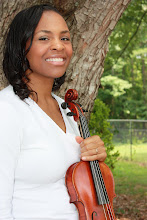Is it possible to separate what is spiritual from what is physical? Is it possible to go read the Bible and live life completely disconnected from what was read?
In one sense, yes. There are many people who go to church, listen to solid exegetical sermons, read the Bible (even daily) and divorce the gospel from their practical living. These individuals don't consider their sinful patterns in terms of personal sanctification (i.e. they still gossip, lust, and indulge the flesh after hearing convicting sermons about the same issues).
However, the true answer is no. God, who is spiritual, created everything that is physical. So then, the physical cannot be estranged from the spiritual. (See Genesis 1:1ff, Romans 1:20, Colossians 1:15 and 1 Timothy 1:17.)
"Wait . . . but I'm no theologian!" Ahh, but you are! What one thinks about God is theological by definition, for everything we say and do reflects an implied theology of God whether we admit it or not. This always manifests itself in our behavior towards Him and His Church. What we believe about God ultimately dictates how we live day-to-day.
For example, if we don't think that God is powerful, then our actions will reflect that. We will not pray. We will not depend on His strength and grace to make it through the daily grind; we will rely on our own strength. We will conclude that there are hearts that are just too hard for God to change, and we won't evangelize. Eventually, we will surmise that the gospel is impotent; over time we may even reject the faith.
In another example, if we don't think that God is omnipresent, then we convince ourselves that we can go on sinning because God doesn't see. We will begin to doubt the existence of God, for to be God is to be omnipresent. Moreover, if we think that God is not all-together wise, then we will concoct our own means when difficult situations arise. Soon, we succumb to some type of naturalistic humanism.
Again, another example: Equating the love of God with benevolent sentimentalism instead of with objective authoritative truth is destructive. To do so denies reason, power, righteousness, and justice because such absolutes are founded upon an Absolute God who has spoken to us in an intelligible way. That individual will eventually become a moral relativist, which is the philosophy that says whatever is good to you is good and what is right for one person is right for that person. It's just another form of religious pluralism, which, ironically is a religious system in and of itself that has made itself a form of absolutism without an absolute on which to be grounded. This person may not condemn homosexuality, abortion, pornography, alcoholism, anxiety, bitterness or anger, but they will create other things to condemn. They will arbitrarily condemn whatever they personally disagree with. In reality then, they are being exclusive and not inclusive, for the denying of one thing is by default the endorsing of another.
Again we ask: Why does it matter what we think about God and how we understand His methods in redeeming humanity? Can't we truly enjoy fellowship with our brothers and sisters in Christ without all the intellectual stimulation? Why do we need to define terms? Why can't we all just believe what we believe without letting there be division amongst us? "Can't we all just get along?"
If we follow that line of reasoning, we set ourselves up for a false peace. For example, if we don't want to differentiate between arminian and reformed theological viewpoints, then how do we evangelize? What will we say? What will we avoid saying? How could we possibly have a clear conscience that we are speaking the truth of the gospel in love? What benefit is there to the believer to know the manner in which God applies salvation? The answers to these questions will dictate behavior.
Ultimately, knowing God rightly will empower us to love Him as He truly is. The more we worship Him as He truly is then the more we are transformed into His image (2 Corinthians 3:18). This then allows us to operate freely in the realm of His righteousness, liberated from the bondage of sin.
(This post was written with help from my wonderful husband:-)












No comments:
Post a Comment